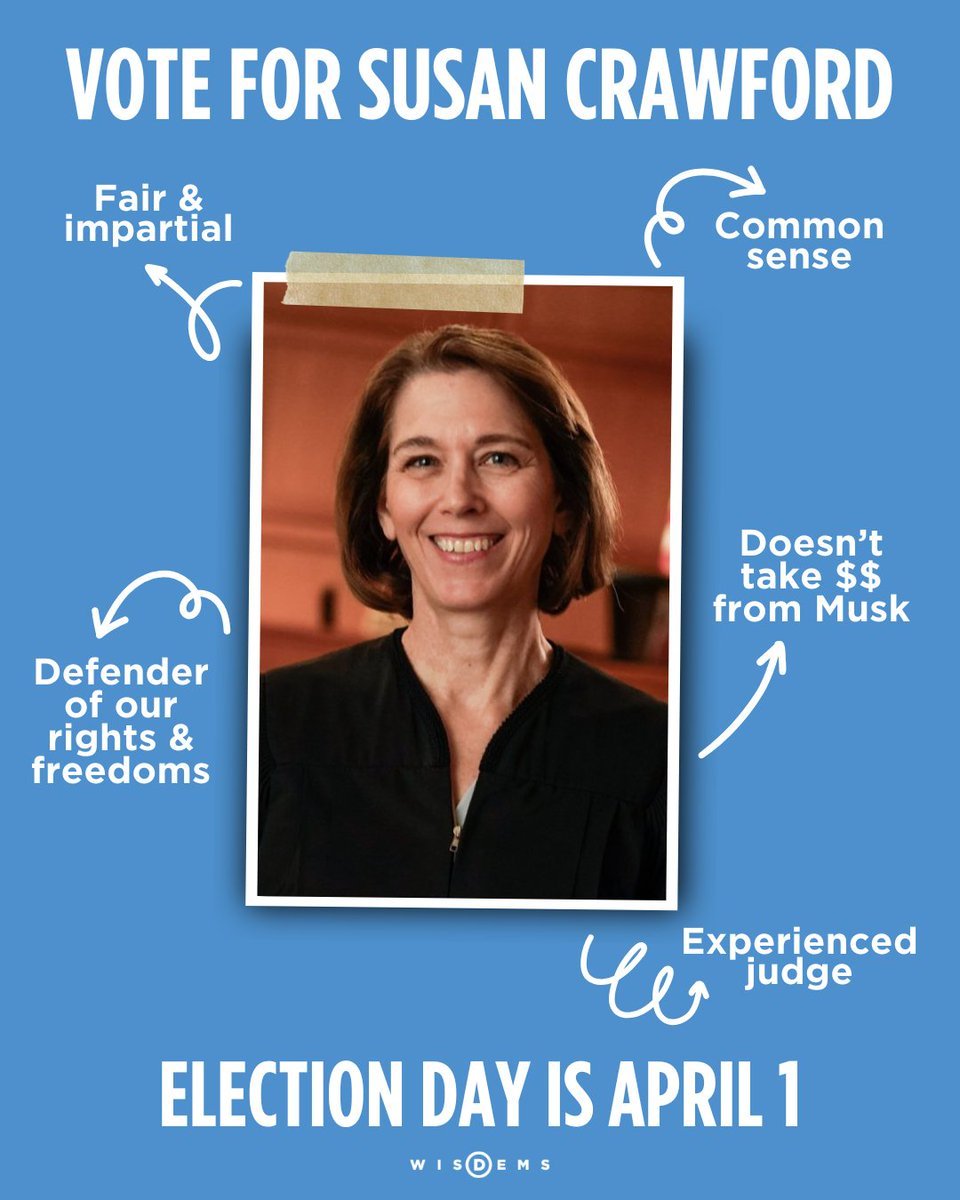Tuesday, April 1, 2025. Annette’s Roundup for Democracy.
It is April 1 but this is not April Fool’s Day. What is happening in this country is no joke.
The deranged man goes after our universities.
Yesterday, Trump began in earnest to destroy Harvard University, another of our great research as well as teaching universities.
Trump administration to review $9B in contracts, grants with Harvard
The Trump administration announced plans on Monday to do a “comprehensive review” of the federal grants and contracts awarded to Harvard University as part of its efforts to crack down on antisemitism on college campuses.
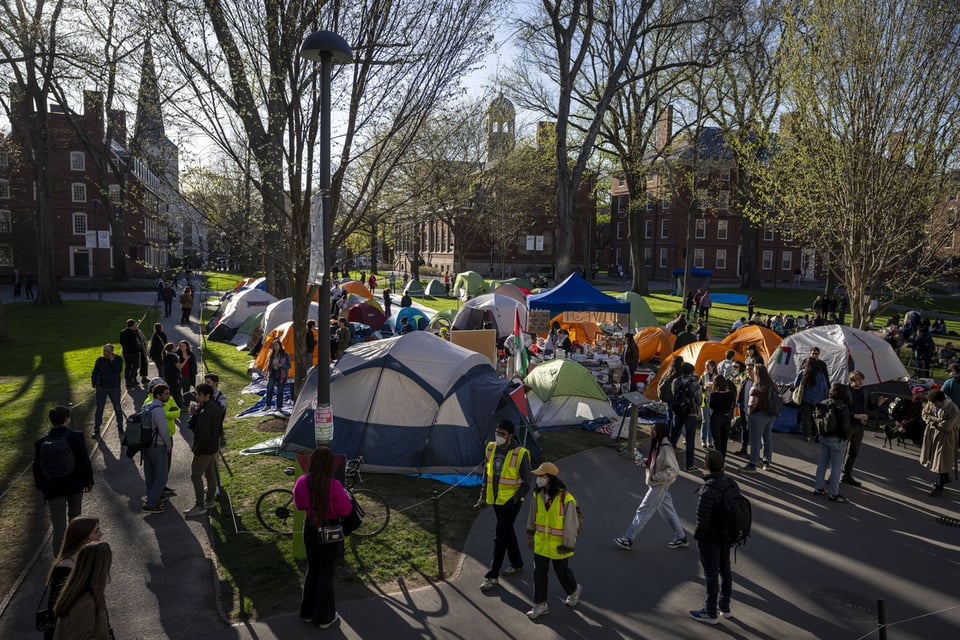
Students protesting against the war in Gaza, and passersby walking through Harvard Yard, are seen at an encampment at Harvard University in Cambridge, Mass., on April 25, 2024.
The departments of Education and Health and Human Services, and the General Services Administration will review the more than $255.6 million in contracts they have with the school and its affiliates. The announcement did not suggest the agencies had cut or suspended funds to Harvard yet. The review also includes the more than $8.7 billion in multi-year grant commitments to Harvard and its affiliates.
Education Department officials say the purpose of the review is to make sure the university is in compliance with federal regulations, including its civil rights responsibilities.
“Harvard has served as a symbol of the American Dream for generations — the pinnacle aspiration for students all over the world to work hard and earn admission to the storied institution,” Education Secretary Linda McMahon said in a statement. “Harvard’s failure to protect students on campus from anti-Semitic discrimination — all while promoting divisive ideologies over free inquiry — has put its reputation in serious jeopardy.”
Harvard did not immediately respond to a request for comment.
Key context: The announcement comes after the administration threatened to pull $400 million worth of grant funding at Columbia University, accusing the university of not doing enough to protect Jewish students amid pro-Palestinian protests.
Shortly after Columbia’s funding was frozen, Harvard announced its own hiring freeze.
Columbia later agreed to comply with a set of demands from the administration such as banning face masks during protests on campus and changing how students are disciplined. The school also said it would place its Middle Eastern, South Asian and African Studies Departments and the Center for Palestine Studies under the authority of a new senior vice provost, according to a document the university said it shared with the federal Education Department and other federal agencies.
The Trump administration praised Columbia for taking “a positive first step” last week but has not yet indicated whether it would restore its federal funding.
The letter President Garber of Harvard sent out to alumni yesterday.

Dear Members of the Harvard Community,
Earlier today, the federal government’s task force to combat antisemitism issued a letter putting at risk almost $9 billion in support of research at Harvard and other institutions, including hospitals in our community. If this funding is stopped, it will halt life-saving research and imperil important scientific research and innovation.
The government has informed us that they are considering this action because they are concerned that the University has not fulfilled its obligations to curb and combat antisemitic harassment. We fully embrace the important goal of combatting antisemitism, one of the most insidious forms of bigotry. Urgent action and deep resolve are needed to address this serious problem that is growing across America and around the world. It is present on our campus. I have experienced antisemitism directly, even while serving as president, and I know how damaging it can be to a student who has come to learn and make friends at a college or university.
For the past fifteen months, we have devoted considerable effort to addressing antisemitism. We have strengthened our rules and our approach to disciplining those who violate them. We have enhanced training and education on antisemitism across our campus and introduced measures to support our Jewish community and ensure student safety and security. We have launched programs to promote civil dialogue and respectful disagreement inside and outside the classroom. We have adopted many other reforms, and we will continue to combat antisemitism and to foster a campus culture that includes and supports every member of our community.
We still have much work to do. We will engage with members of the federal government’s task force to combat antisemitism to ensure that they have a full account of the work we have done and the actions we will take going forward to combat antisemitism. We resolve to take the measures that will move Harvard and its vital mission forward while protecting our community and its academic freedom. By doing so, we combat bias and intolerance as we create the conditions that foster the excellence in teaching and research that is at the core of our mission.
Much is at stake here. In longstanding partnership with the federal government, we have launched and nurtured pathbreaking research that has made countless people healthier and safer, more curious and more knowledgeable, improving their lives, their communities, and our world. But we are not perfect. Antisemitism is a critical problem that we must and will continue to address. As an institution and as a community, we acknowledge our shortcomings, pursue needed change, and build stronger bonds that enable all to thrive. Our commitment to these ends—and to the teaching and research at the heart of our University—will not waver.
Sincerely,
Alan M. Garber
Trump’s attack on Columbia continues mercilessly as his attack dog Elisa Stefanik is back in the House.
New Columbia President Attacked by Stefanik Over 2023 Text Message.
Elise Stefanik, a prominent Republican, questioned Claire Shipman’s commitment to protecting Jewish students. Ms. Shipman pledged “to build on the significant progress we’ve made.”
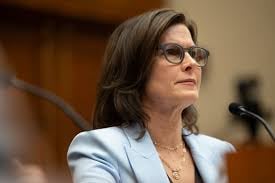
Columbia President Claire Shipman.
Claire Shipman is only days into her job as acting president of Columbia University but is already being targeted by a prominent House Republican who questions her commitment to fighting antisemitism on campus.
Ms. Shipman, in a private text message in December 2023 to Nemat Shafik, who was then Columbia’s president, referred to congressional hearings into campus antisemitism as “capital hill nonsense,” according to a transcript of the exchange released by the House Committee on Education and the Workforce as part of an investigative report last year.
The comment is coming back to haunt Ms. Shipman. Representative Elise Stefanik, who is remaining in the House after President Trump withdrew her nomination to be U.S. ambassador to the United Nations, seized on the remark during a television interview Sunday, predicting that Ms. Shipman will not last long in her new position.
“It’s already come out that she has criticized and belittled the House investigation and the accountability measures and has failed to protect Jewish students,” Ms. Stefanik said on Fox News’ “Sunday Morning Futures.”
“It’s untenable for her to be in this position, and I think it is only going to be a matter of weeks before she’s forced to step down as well,” she added.
On X, Ms. Stefanik, whose pointed questioning of Ivy League presidents about antisemitism during the committee hearings sparked the departures of the presidents of Harvard and the University of Pennsylvania, gave other details.
She wrote that last April, when Ms. Shipman testified alongside Dr. Shafik at the committee hearings into antisemitism, Ms. Shipman had “cheered in the back anteroom about how it was going so well for them,” even as a pro-Palestinian encampment on Columbia’s lawns was forming that same day.
In the related fallout, Dr. Shafik resigned in August, and Dr. Katrina Armstrong, her interim replacement, left her post on Friday.
“Two Presidents later, here we are,” Ms. Stefanik posted on Saturday. “They will be onto yet another Columbia President very, very soon after this one. They still don’t get it.”
The federal government’s Task Force to Combat Antisemitism pulled about $400 million in federal research grants from Columbia on March 7. A week later, it issued a letter outlining nine steps it wanted Columbia administrators to take as a precondition to start negotiations about returning the money.
Dr. Armstrong pledged to comply with the conditions in a letter sent to the federal government on March 21. But a week later, after media reports that she had played down the extent of the changes at a private faculty meeting, Columbia announced that she was stepping down. The board of trustees selected Ms. Shipman as her acting replacement until a permanent president could be hired.
In her private text to Dr. Shafik in December 2023, Ms. Shipman showed an interest in engaging the pro-Palestinian movement rather than disciplining it. She suggested that Columbia “think about how to unsuspend the groups” — a reference, the report said, to Students for Justice in Palestine and Jewish Voice for Peace, two student groups that had been suspended for repeatedly violating university rules.
She also suggested working with Rashid Khalidi, a Palestinian historian, now retired, who was affiliated with the Columbia’s Center for Palestine Studies. In the House committee’s description, this amounted to “working behind the scenes to appease the University’s antisemitic actors.”
“FINDING: COLUMBIA’S LEADERS EXPRESSED CONTEMPT FOR CONGRESSIONAL OVERSIGHT OF CAMPUS ANTISEMITISM,” the report trumpeted over its description of Ms. Shipman’s text message.
A Columbia spokeswoman, Samantha Slater, said on Monday that the university was proceeding with the changes it had promised, which include empowering a unit of campus police with arrest powers and increasing oversight of a Middle East studies department.
“We are focused on doing what is right and honoring our commitments to create a Columbia community where students are safe and able to flourish,” she said in a statement. “This will secure Columbia’s future.”
Ms. Shipman, who has been on the Columbia board since 2013 and became co-chair in 2023, did not address the controversy Monday in her first formal letter introducing herself to the campus in her new role. But she said she would follow through on Columbia’s pledge to address the Trump administration’s concerns.
“We will continue to build on the significant progress we’ve made, and the plan outlined to move our community forward,” she wrote.
“My request, right now, is that we all — students, faculty, staff, and everyone in this remarkable place — come together and work to protect and support this invaluable repository of knowledge, this home to the next generation of intellectual explorers, and this place of great and continuing promise,” Ms. Shipman wrote. (New York Times).
A Message from Acting Columbia President Claire Shipman.
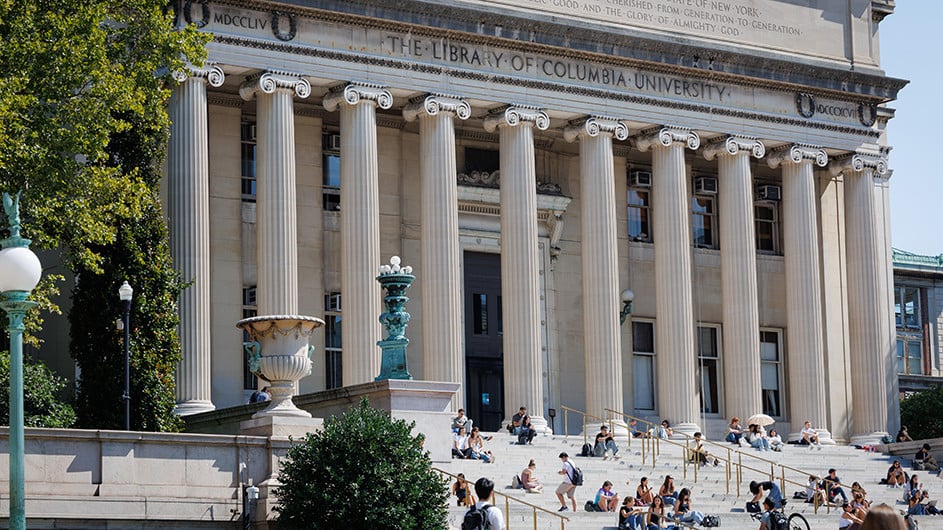

Dear members of the Columbia community,
Today, I write to you in my new capacity as Acting President. I do so with awe for the role, reverence for this institution, and clarity about our challenges. Ornamental language can’t disguise the fact that this is a precarious moment for Columbia University. In serving our community and navigating what’s to come, I pledge to be as transparent as possible, and to work as hard as I can to do right by a place that is so critical to all of us, and to the world.
There is no overstating the influence Columbia has had on my life. When I arrived on College Walk in 1982, I wasn’t your typical student. I had transferred into the first class of women, not appreciating that fact at the time. I grew up in the Midwest, and I wasn’t particularly well-versed in the Ivy League. What I found here was a place that ignited my curiosity and drive to explore. As is the case for so many students, I arrived at Columbia, and something clicked. I recognized myself.
This is what happens at Columbia. We love the sharp argument, the intellectual sprawl, the sense that anything feels possible. I returned for graduate school and then served on the SIPA Advisory Board, the College Board of Visitors, and the Board of Trustees, hooked on all the ways this remarkable place keeps pushing the frontiers of scholarship and discovery.
I want to express my deep gratitude to Dr. Katrina Armstrong for taking on the challenge of stepping in as Interim President, and for her heroic efforts over the past seven months.
Over the coming days and weeks, I hope to meet and talk with as many of you as I can. If you see me, please come and say hello. I want to hear from you, and I would welcome input about how we can build a shared sense of community.
We will continue to build on the significant progress we’ve made, and the plan outlined to move our community forward.
To be clear—our task is not an easy one. But a skill Columbia teaches all of us is perseverance; my request, right now, is that we all—students, faculty, staff, and everyone in this remarkable place—come together and work to protect and support this invaluable repository of knowledge, this home to the next generation of intellectual explorers, and this place of great and continuing promise.
I look forward to seeing you on campus.
Sincerely,
Claire Shipman
Acting President, Columbia University in the City of New York
One University President who remembers the proper role of a university.
I’m Cornell’s President. We’re Not Afraid of Debate and Dissent.
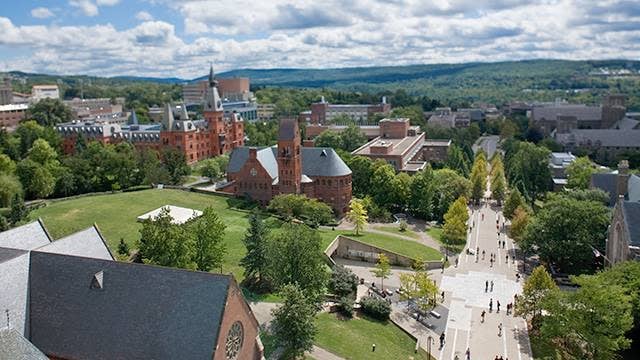
Cornell University recently hosted an event that any reputable P.R. firm would surely have advised against. On a calm campus, in a semester unroiled by protest, we chose to risk stirring the waters by organizing a panel discussion that brought together Israeli and Palestinian voices with an in-person audience open to all.
We held the event in our largest campus space, promoted it widely and devoted significant resources to hosting Salam Fayyad, a former prime minister of the Palestinian Authority; Tzipi Livni, a former vice prime minister and foreign minister of Israel; and Daniel B. Shapiro, a former United States ambassador to Israel, in a discussion moderated by Ryan Crocker, a career diplomat and former U.S. ambassador to countries in some of the world’s most combustible regions.
The week before, I extended a personal invitation to our student community, explaining that open inquiry “is the antidote to corrosive narratives” and is what enables us “to see and respect other views, work together across differences and conceive of solutions to intractable problems.”
Was I surprised when the discussion was almost immediately interrupted by protest? Disappointed, yes, but not surprised or deterred. We had expected it and were prepared. The few students and staff members who had come only to disrupt were warned, warned again and then swiftly removed. They now face university discipline.
Inside the auditorium, the event went on as planned. The hundreds of students who remained listened and learned. They peered into a world beyond shouted slogans and curated stories. They learned about the region’s politics and power dynamics, and the evolving national identities and echoes of past empires that continue to shape the reality of the Israeli-Palestinian conflict. They heard experts intimately involved in earlier peace processes explain why their efforts failed, and how future leaders could one day succeed. The full video was posted online, so anyone interested can also benefit.
If Cornell were a business, we might have called the event a failure: The news coverage displayed only the disruption, and ignored the rest. Fortunately for our students, Cornell is not a business. We are a university. And universities, despite rapidly escalating political, legal and financial risks, cannot afford to cede the space of public discourse and the free exchange of ideas.
In a democracy, universities serve to guard and promote the expertise, knowledge and democratic norms that advance societies, and on which universities themselves rely for their continued existence. Ronald Daniels, the president of Johns Hopkins, put it well in his 2021 book on higher education and democracy when he wrote that colleges and universities are “institutions committed to freedom of inquiry, to the contestation of ideas through conversation and debate, to the formation of communities that gather and celebrate a diverse array of experiences and thought, and to individual flourishing achieved through diligent study.”
The impact of our universities derives in no small part from their ability to equip students with the skills to evaluate evidence critically, consider issues from multiple perspectives, participate meaningfully in the exchange of ideas, and grapple with the difficult and the complex — in short, to participate fully and capably in a modern democracy.
Democracies are not silent places, and neither are universities. They are vibrant, active and sometimes unruly; differences are aired, disagreements argued, voices raised. And yes, among our nearly 27,000 students, there are some who feel justified in violating norms of respectful interaction, who seek to advance their own agendas by silencing individuals and ideas with which they disagree. When that happens, we respond in ways that protect the rights of all to speak and learn.
What is key to our commitment to open inquiry is ensuring that all voices — from every point on the political spectrum — can be heard. When student groups invite controversial speakers to campus, we don’t intervene and we don’t weigh in, as long we are confident the events can be held safely. When Ann Coulter, a co-founder of the conservative Cornell Review, was shouted down at a student-led campus event, we invited her back to speak again. Our campus has hosted Mark Bauerlein, a prominent critic of D.E.I. initiatives in higher education, and Ken Davis, of the Federalist Society, in the past months. And we also recently hosted Angela Davis, a professor emerita at the University of California, Santa Cruz, and a political activist who was involved with the Black Panthers and was a member of the American Communist Party.
Do many in our academic community disagree with what those speakers had to say? Sure. And that is, in large part, the point. Universities cannot be allowed to become echo chambers; if they do, they’ve lost their purpose.
It’s not an easy time to lead a university in the United States, and resolutely upholding the right to free inquiry and expression doesn’t make it easier. A messy event that turns into viral videos causes understandable concern to trustees and alumni, and adds more fuel to already burning fires.
But if we are to preserve our value and our meaning, we cannot let our caution overtake our purpose. Our colleges and universities are cradles of democracy and bulwarks against autocracy. Only by defending democratic values and norms and educating our students to carry them forward in all their complexity and challenge will we safeguard the future of our institutions — and our nation. (Op-Ed, New York Times).
Today we await the result of the special election for a Supreme Court spot in Wisconsin.
Yesterday, Musk wrote two checks for $1 million each to buy the election. Will we let him?
If you know anyone in Wisconsin, give them a call today.
